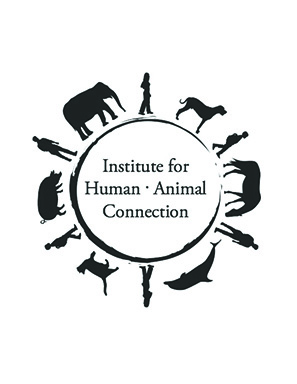Ecological Justice and the Human-Animal-Environment Bond

This fall, the Graduate School of Social Work launched a new pathway for MSW students in Ecological Justice*. Ecological justice involves the recognition that humans and all other species on Earth, as well as abiotic natural systems are intricately interlinked. If the health and wellbeing of one aspect of these interlinked systems is harmed, that harm radiates out to the other systems. When all aspects are allowed to flourish, other entities do as well. Ecological justice also demands that humans recognize Earth’s limits. Earth is primarily a closed system, our thinking of human flourishing and what is possible, equitable, and compassionate within ecological limits is a paramount consideration. We are not the only species of moral concern nor with physical limits that we accept for all other species. Ecological Justice involves creating and allowing for regenerative systems to be practiced that protect the health and wellbeing of humans, other species, and Earth.
Environmental Justice is embedded in Ecological Justice.
More and more people are learning about environmental justice, or more specifically, environmental racism in which some groups of people are routinely subjected to “environmental harms” that have a deleterious impact on their health and wellbeing. Environmental injustices can be addressed without solving environmental harms, often those harms are just exported to other regions on Earth where they harm even more vulnerable people, species, and ecosystems. Ecological justice is more comprehensive in that it demands that we consider the full global system and everyone who is in harm’s way due to demands by humans, and asks that humans create new systems based on promoting flourishing and wellbeing for all humans, all species, and the natural world.
Ecological Justice and the Institute for Human-Animal Connection
At the Institute for Human-Animal Connection, we are enthusiastic about this new area of study as it complements our work exquisitely. We have long promoted that human health and wellbeing will only be realized through creating healthy human relationships with the natural world and with all other species. Many students who choose to gain the Human-Animal-Environment in Social Work Certificate are also in the Ecological Justice pathway, providing them with a comprehensive study of the supportive theories, skills, and values to work toward creating a healthy and humane human presence on Earth where all people, species, and ecosystems can thrive.
Any of our readers who practice humane education will also note the parallels between ecological justice and the work of humane education practitioners to reveal and uphold the embeddedness of human health, wellbeing, and survival with the rest of the natural world. Humane education cultivates the knowledge, compassion and skills to create a humane human presence on Earth through allowing human relationships with each other, other species and Earth to become restorative and regenerative.
